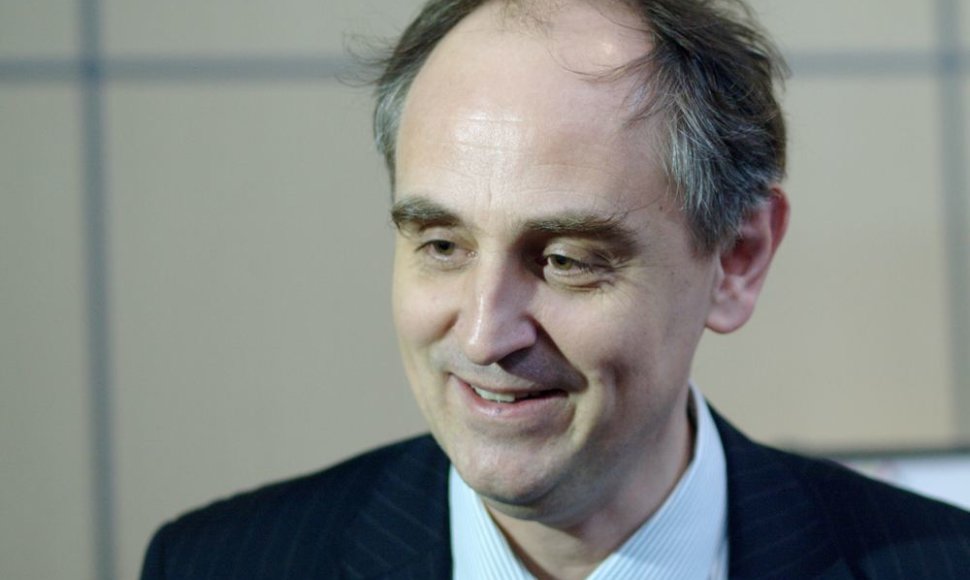Edward Lucas, a senior editor at The Economist, spoke in front of 150 participants from Lithuania, Ukraine, Latvia, Poland, Hungary, UK and other countries, and answered their questions at the Lithuanian Embassy in London last Tuesday.
Presenting his new book „The Snowden Operation: Inside the West's Greatest Intelligence Disaster“ Lucas highlighted the damage Edward Snowden’s leaked NSA documents did for the West and the increasing relevance in the light of the recent events in Ukraine.
According to Lucas, Snowden’s actions served Russia’s interests, increased the mistrust among the countries and contributed significantly towards diving the West, European countries among themselves as well as Europe and America.
“It certainly doesn’t help the West to reach the united position when dealing with Russia,” said Lucas talking about the reactions to recent events in Ukraine that also raised concerns about the safety of the Baltics and other countries.
“This is a time when the West really need to stick together,” he said, “we should be sharing a lot of information about the activities of Russian organised crime and oligarchs.”
Lucas also mentioned the 1994 Budapest Memorandum when Ukraine gave up its nuclear weapons in exchange for security assurances from Moscow and the West. “Why would Iran or any other country give up their nuclear weapons when these Western promises aren’t worth anything,” he wondered.
Irina Tymczyszyn, a lawyer and director of the Ukrainian-British City Club, thinks that neither West, nor US have fully realised the extent of what is actually happening now in Ukraine. “It’s not a civil war, it’s not the war in Europe, it will be a beginning of the World War Three,” said Tymczyszyn, who did not expect to see the day of Russia invading Ukraine.
Delisting Rosneft from the Western stock exchange Lucas named as one of the necessary sanctions against Russia. He also suggested introducing money-laundering investigations into extremely obvious targets, giving rich Russians on very small official salaries buying large houses in the West as one of the examples.
When asked what strategy he would recommend for the Baltic States, Lucas said: “The most important thing is to stick together; Russia likes playing ‘Divide and Rule’”. He also advised the Baltics to take information warfare very seriously, and defend themselves against the Russian propaganda.
One of the important questions for the Baltic States in case of Russia’s invasion is who and how would defend them. According to Lucas, Poland that currently has one NATO division only is expected to put one third of their army in to the Baltic States in a hope of being reinforced. Would Poland risk their own territory to defend the Baltic States? “The need to increase NATO forces in Poland is obvious,” he thinks.According to the president of Lithuanian City of London Club, Viktorija Vasiliauskaitė, a large number of the participants demonstrates the relevance of such events: “We aim to initiate more discussions among the representatives of the government and experts abroad.“
By Evelina Živatkauskaitė for LCLC












